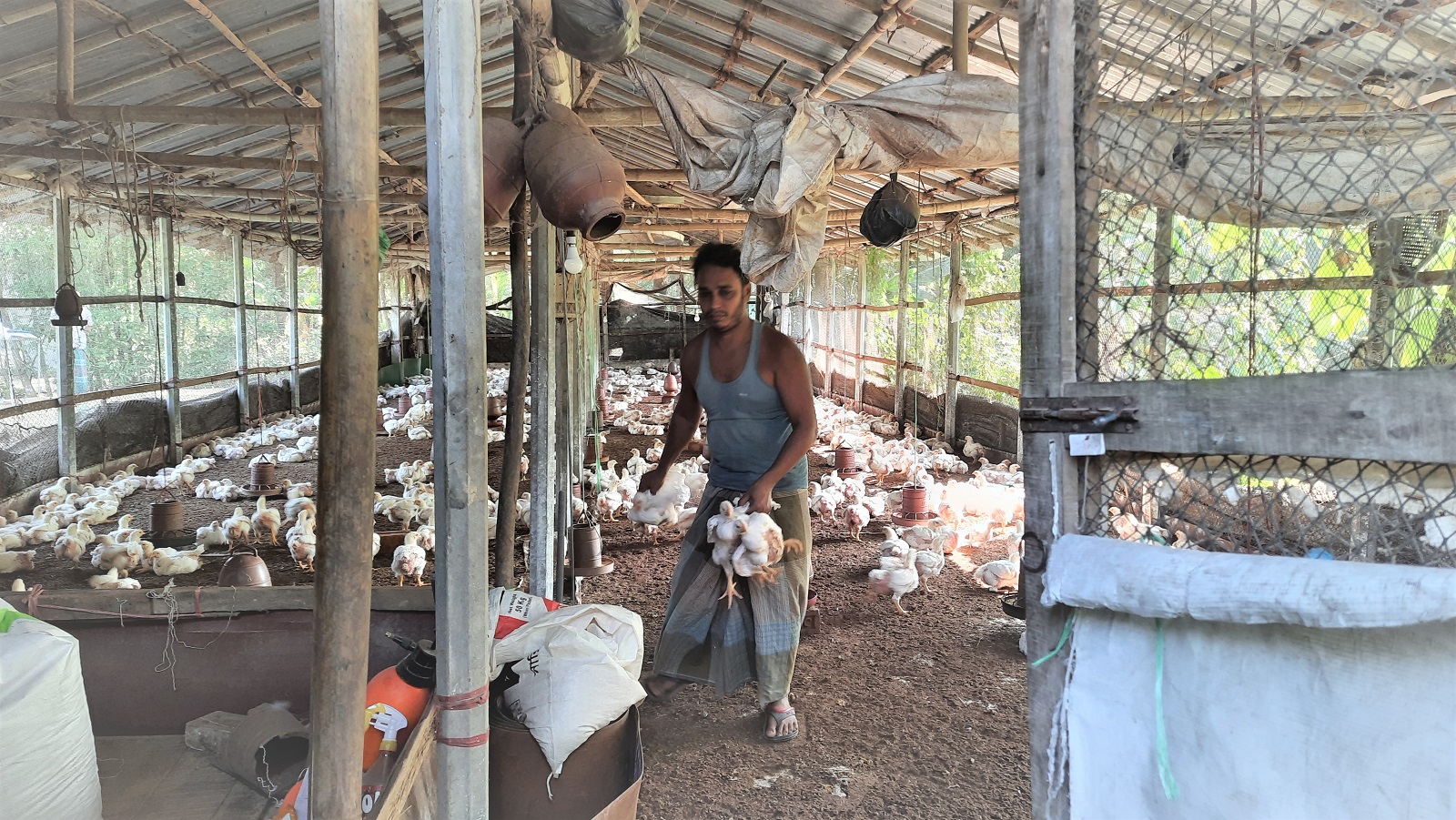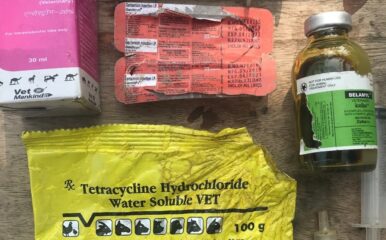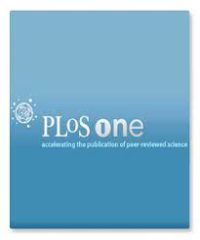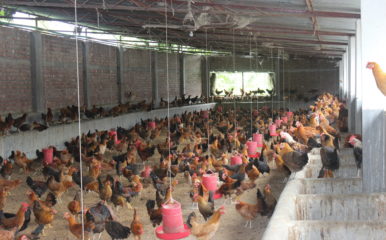
Theory of Change
All our work is informed by our Theory of Change, the theoretical model underlying our work.
Our Theory of Change (ToC) offers a visual representation of how we aim to contribute to our overarching objective of safer and more sustainable poultry production.
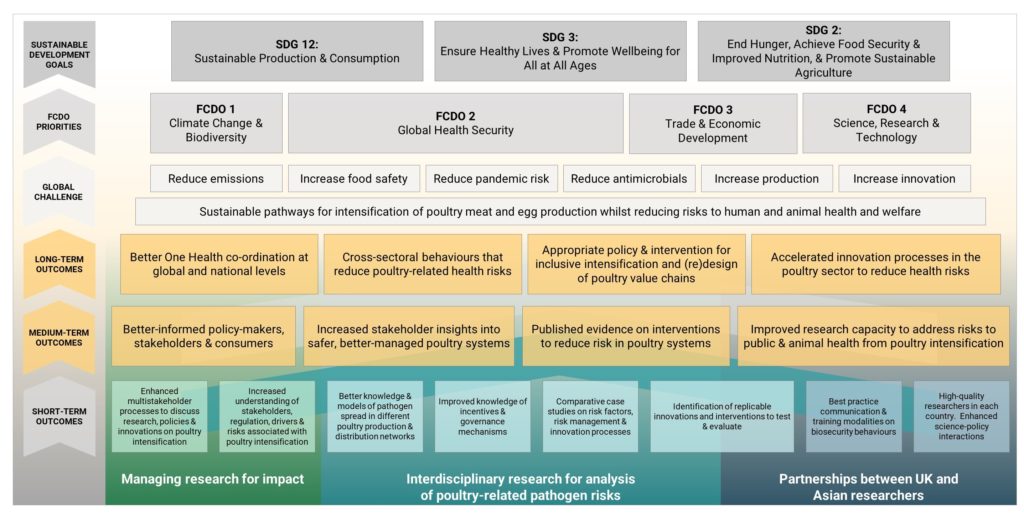
The ToC details how we envisage effecting positive change, describing how we move from our day-to-day activities (such as fieldwork), to the production of short-term outputs (such as academic papers), which in turn we expect to lead to short-term, then medium-term, outcomes (such as increased knowledge of the key risks and drivers of zoonoses in poultry production).
The ToC explains the processes by which changes are expected, outlining causal linkages. Essentially, it adds the ‘how’ and ‘why’ to the activities that we undertake and which, ultimately, contribute to Sustainable Development Goal targets and UK Foreign, Commonwealth & Development Office priorities.
Our activities range from fieldwork and lab work, to capacity building, to partnership building, to communications work. They result in many outputs. Some are academic papers on e.g., mathematical models for disease prediction or understanding of poultry production and distribution networks. But they also include databases, training materials, policy briefs, blogs, complementary research proposals and much, much more.
These outputs have short-term outcomes and target medium-term outcomes in various stakeholders. Our ToC has grouped these into four categories: 1) policymakers, producers and consumers will be better informed about the health risks associated with poultry intensification; 2) the professional and academic community has increased insights into safer, better-managed poultry systems; 3) the sector has more evidence on interventions that reduce risk in poultry systems; and 4) the research networks involved have an improved capacity to identify and address the risks from poultry intensification to public and animal health.
The longer-term outcomes are out of the Hub’s direct span of influence and need collaboration with others programmes and initiatives: better One Health coordination, cross-sectoral behaviours that reduce health risks, appropriate options for policy and interventions, and accelerated innovation processes in the poultry sector.
Already the Hub has a clear contributory role in some of these areas that we documented in our Making Impact stories.
We revise our ToC regularly, to reflect changing circumstances. For example, following the COVID-19 pandemic we added in new COVID-19 related work packages and related outputs. One Health coordination was added as an additional long-term outcome, and our impact, communication and engagement strategy has broadened. The need for intersectoral coordination also appeared as priority from our 2020/21 Roadmap Series.
Next to the Theory of Change, we use a Theory of Action (ToA) to adaptively manage and monitor the activities. The monitoring indicators are largely similar for each work package, and require, among others, a detailed workplan that is discussed with the programme leads and the different committees that coordinate work among the partners.
View the full ToC
Making impact
